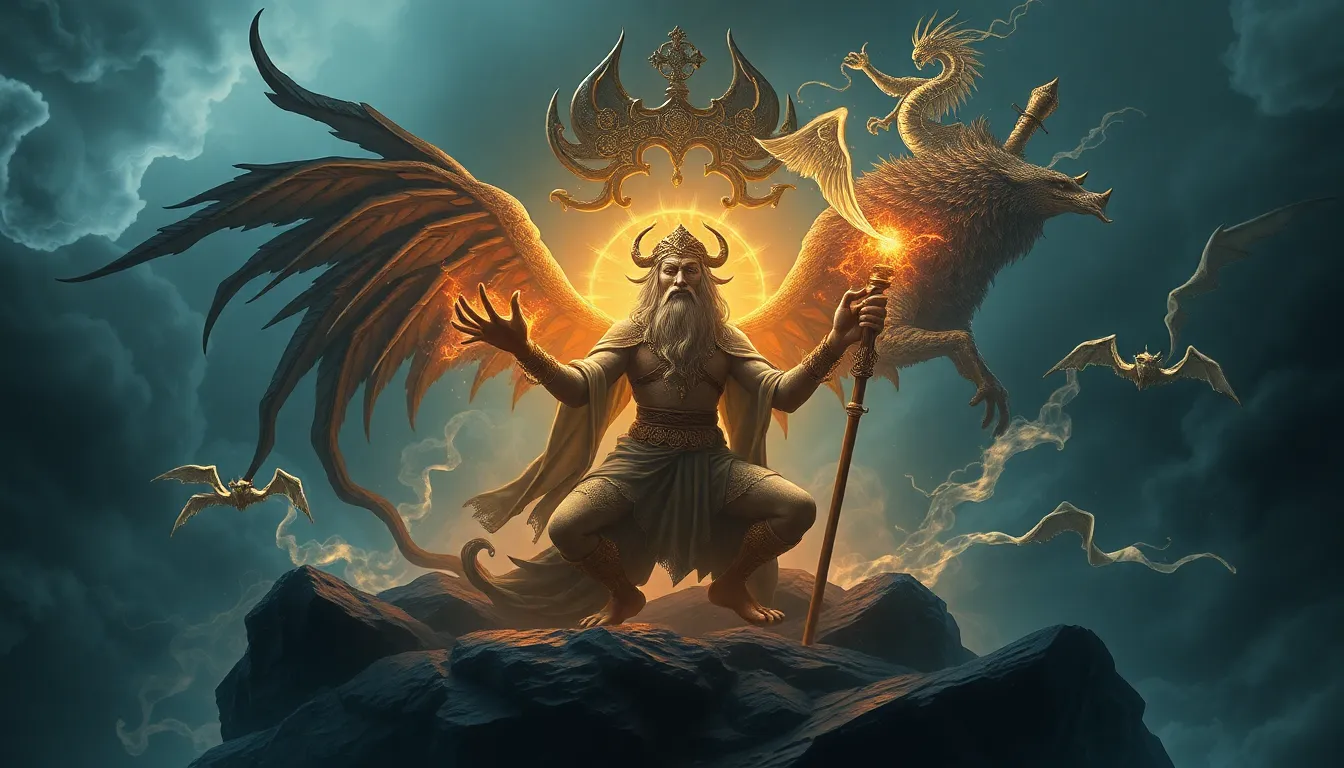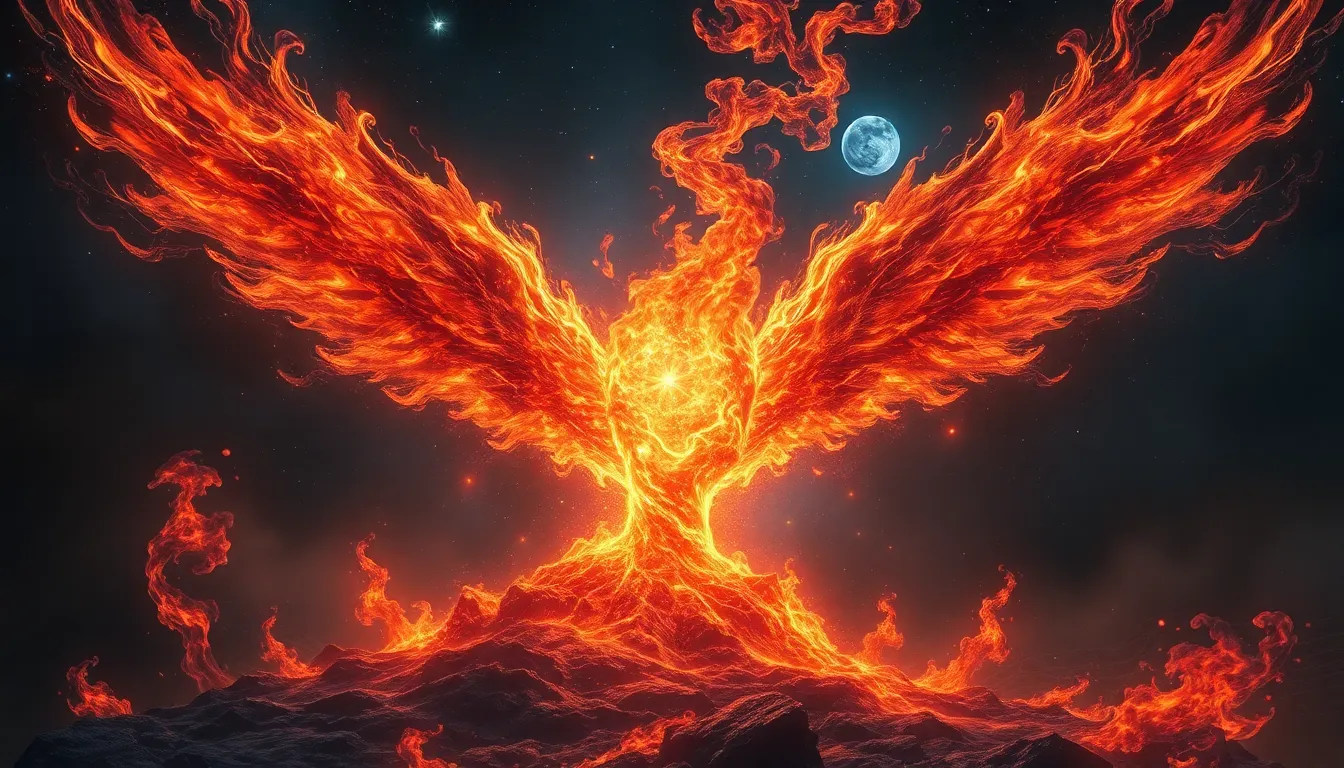The Most Inspiring Ancient Deities: Myths of Hope and Resilience
Introduction: The Significance of Ancient Deities in Human Culture
Ancient mythology has played a fundamental role in shaping the values and beliefs of societies throughout history. These myths not only served to explain natural phenomena but also provided a framework for understanding human experiences and emotions. Ancient deities, as central figures in these stories, embody various aspects of life, including hope and resilience. By examining their narratives, we can uncover profound messages that continue to resonate with us today.
The Concept of Hope in Ancient Mythology
Hope, in the context of ancient cultures, is often depicted as a guiding light during times of despair and adversity. Myths served as a source of comfort, offering narratives that inspired individuals to persevere through challenging circumstances. The stories of gods and goddesses often illustrate the triumph of the human spirit over hardship, reinforcing the belief that hope can lead to renewal and transformation.
Greek Mythology: The Resilience of Prometheus
One of the most iconic figures representing resilience in Greek mythology is Prometheus. According to myth, Prometheus defied the gods by stealing fire and giving it to humanity, an act that symbolized enlightenment and the pursuit of knowledge.
- The Sacrifice: Prometheus faced severe punishment for his actions, being bound to a rock where an eagle would eat his liver daily, only for it to regenerate each night.
- The Enduring Spirit: Despite his suffering, Prometheus’s gift of fire ignited the flames of creativity and innovation in human civilization, illustrating the theme of sacrifice for the greater good.
Prometheus’s story embodies the resilience of the human spirit, teaching us that the pursuit of knowledge and progress often comes at a cost but is ultimately worth the struggle.
Egyptian Deities: The Hope Embodied by Isis
In Egyptian mythology, Isis stands as a powerful symbol of hope and resilience. The myth of Isis revolves around her unwavering love for her husband, Osiris, and her determination to resurrect him after his murder by their brother, Set.
- Quest for Resurrection: Isis’s journey to gather the pieces of Osiris’s dismembered body exemplifies her devotion and strength. Through her magic, she successfully brings him back to life.
- Symbolism of Rebirth: This myth encapsulates the themes of rebirth and renewal, reflecting the cyclical nature of life and death in Egyptian culture.
Isis teaches us that hope can flourish even in the darkest of circumstances, and love can conquer death itself.
Norse Mythology: The Strength of Odin
Odin, the chief god in Norse mythology, is often associated with wisdom, war, and death. His journey is marked by numerous sacrifices made in the pursuit of knowledge, making him a figure of resilience.
- Sacrifices for Wisdom: Odin hung himself from the World Tree, Yggdrasil, for nine days and nights to gain insight into the runes, showcasing the lengths he would go for enlightenment.
- Facing Fate: The myth of Ragnarok, the prophesied end of the world, highlights Odin’s acceptance of fate and his determination to fight against it, embodying perseverance in the face of inevitable doom.
Odin’s story encourages us to seek knowledge and embrace our challenges, reminding us that strength often lies in our willingness to learn from our experiences.
Hinduism: The Resilience of Durga
In Hindu mythology, Durga is a fierce goddess who represents the triumph of good over evil. Her battle against the buffalo demon Mahishasura is a powerful narrative of resilience and empowerment.
- The Battle: Durga’s fierce determination to defeat Mahishasura symbolizes the struggle against oppression and tyranny, highlighting the strength that lies within.
- Empowerment: The goddess is often depicted riding a lion, showcasing her bravery and the belief that divine power resides within all beings.
Durga’s narrative inspires individuals to harness their inner strength and fight for justice, reinforcing the idea that resilience can lead to victory over adversity.
Native American Legends: The Wisdom of the Great Spirit
Across various Native American cultures, the Great Spirit is revered as a source of wisdom, strength, and guidance. Different tribes interpret the Great Spirit in unique ways, but common themes of endurance and harmony emerge.
- Connection with Nature: Many legends emphasize the importance of living in harmony with nature, teaching that resilience comes from understanding and respecting the earth.
- Lessons of Endurance: Stories of survival, such as those involving animals and the changing seasons, reflect the resilience required to thrive in challenging environments.
The wisdom of the Great Spirit encourages individuals to find strength in their connection with the natural world and to remain hopeful in the face of life’s trials.
The Role of Female Deities in Inspiring Hope
Female deities throughout various mythologies embody resilience and empowerment, serving as role models for hope and strength. Figures such as Athena from Greek mythology, Kuan Yin from Chinese traditions, and Demeter from Roman and Greek myths exemplify these qualities.
- Athena: The goddess of wisdom and war, Athena represents strategic thinking and courage, inspiring individuals to face challenges with intelligence.
- Kuan Yin: Known as the goddess of mercy, Kuan Yin embodies compassion and healing, offering hope to those in suffering.
- Demeter: The goddess of agriculture, Demeter’s story of loss and reunion with her daughter Persephone highlights themes of love, nurturing, and the cycles of life.
These female deities remind us of the power of resilience and the importance of compassion in fostering hope within ourselves and our communities.
Lessons from Ancient Deities: Modern Applications of Hope and Resilience
The stories of ancient deities continue to inspire contemporary society, offering valuable lessons in hope and resilience. Their narratives remind us that challenges are an inherent part of life, and it is our response to those challenges that defines our character.
- Embrace Sacrifice: Like Prometheus and Odin, we may need to make sacrifices for the greater good or to pursue our passions.
- Cultivate Hope: The resilience shown by Isis and Durga teaches us to nurture hope in our lives and to support others in their journeys.
- Learn from Nature: The teachings of the Great Spirit remind us to find strength in our environment and to maintain a deep connection with the world around us.
By applying these lessons, we can navigate the complexities of modern life with greater resilience and hope.
Conclusion: The Enduring Legacy of Ancient Myths on Human Spirit
The myths of ancient deities serve as timeless narratives that cultivate hope and resilience within the human spirit. These stories remind us that, regardless of the hardships we face, there is always a path toward renewal and strength. As we reflect on the wisdom of these ancient figures, let us draw inspiration from their journeys and strive to embody the resilience they represent in our own lives.



